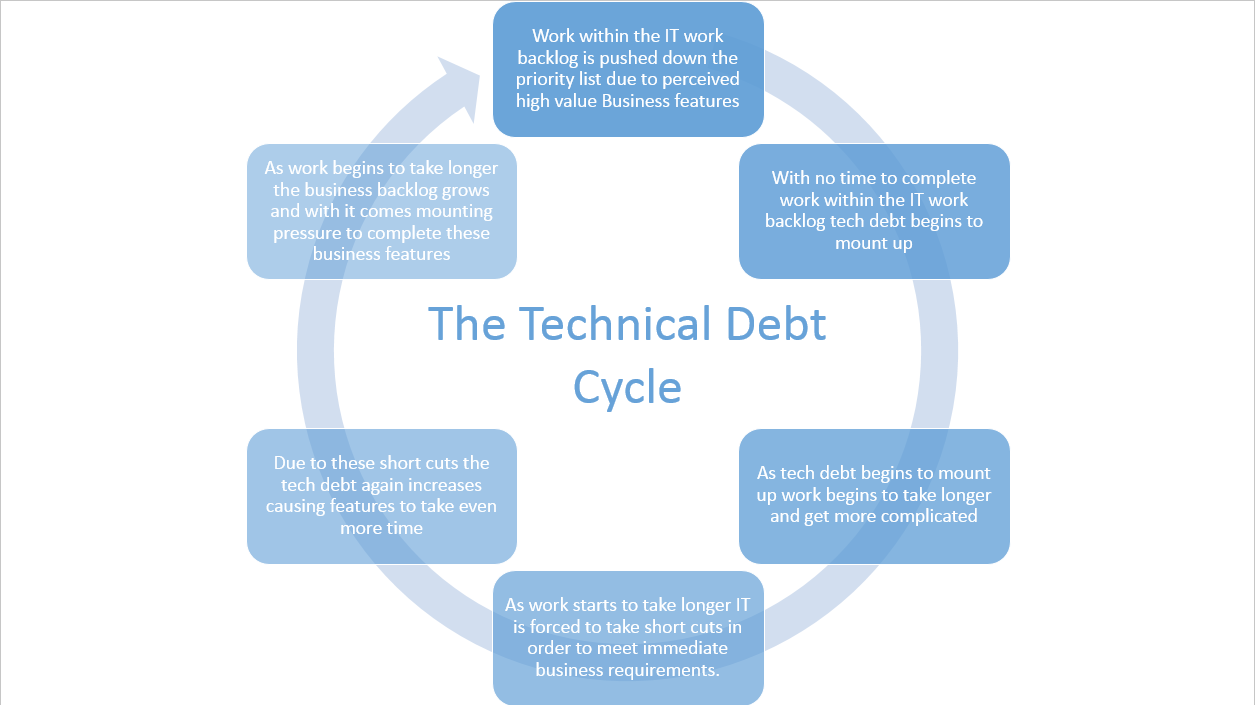What is Technology Debt and Why Should You Avoid It?

Alright, picture this: you're driving a sleek, shiny Tesla down the freeway. Suddenly, the lights start flickering, the GPS goes haywire, and the electric motor sounds like it's powering a La-Z-Boy instead of a luxury car. What do you do?
Well, budget for a visit from the Ghostbuster's truck because that, my friends, is tech debt. Oh, whoops I said that aloud. While you might not have to call the Ghostbusters, you'll definitely need to call in professional help to unravel the mess.
Tech debt is the accumulated tech tasks that bite you in the butt later. Tech investors often prioritize speed over quality, which can lead to shortcuts and hasty decisions, and guess where that gets you? Charging towards tech debt.
Let's break it down like a dance-off:
1. Technical debt isn't just about a codebase that’s a hot mess, it’s a compilation of all those half-baked decisions collecting interest, getting more expensive while bogging down your team's productivity. 2. Imagine you’re coding like a mad scientist. So up against a deadline that you skip unit testing hate everything about it , a good time, yes? However, it turns out that jokes about "code rot" aren't just jokes and haunting your nights about the next bug. - Cutting corners to meet launch dates means you're racking up unforeseen costs, leading to a never-ending loop to fix issues that surface. 3. Like the morning coffee you need to start your day, tech debt might seem inconspicuous at first, but it can have serious repercussions if left unaddressed. Unreliable products aren’t the only pitfall. Investing the right resources early avoids existential threats to your tech.I like to say: Avoid taking on extra technical debt, unless you are, in fact, Deadpool in a coding workshop. Forget having a sound disaster management plan because avoiding the painful process of repaying your tech debt with interest and unnecessary upgrades is like having the smartest strategy in the game.>
The best way to manage tech debt is by scheduling time in your sprints to pay it off. Get a steady pace, and it won't linger like a bad smell. Regular person like me don’t want to end up in a position where fixing old code takes priority over developing new features.
Start by prioritizing your workload. Fixes can be prioritized by criticality and frequency of use, meaning bugs and vulnerabilities that affect the most users or the most critical features should be tackled first. This methodology helps you manage everything more effectively.
Another main part is refactoring your code. Then again, code quality is paramount. Your code is the lifeline of your app and whether it's Functionality or how easy it is to develop. In the same fashion, make sure that way your team members are in charge, deciding what’s worth stomaching and what needs overhauling. Keeping everyone informed means no one gets left behind the times, so you can cool your heels whenever a new feature rolls around.
Lastly, planning and documentation. From day one, you should be treating your documentation as if it were your only child. Without a centralized repository of information to lean on whenever things go dark, all you have left is your lousy memory, and you'd end up being the sucker crying and saying, "I had docs for that?"
The future finance of your organization depends almost entirely on how much thought you give into your tech debt, and it can really be the undoing of even the most promising enterprises.
When NOT to Pay Off Tech Debt
However, it’s also not a priority over everything else. Invest time in the right things: your team’s health maintaining the right work environment is paramount.
Hackathons and side projects are more fulfilling. Brainstorming sessions to organise the crowd thinking for the next big feature are also necessary. They have the potential to create the next big thing. Ultimately they will lead to more revenue and happier customers.
Tech debt is why your programmers secretly hate Mondays, and why developers spend hours brainstorming about the bad code they pushed months ago.
Avoid tech debt because it pains me to say, but it'll save you a lot of pain, and more importantly, it'll keep your codebases and products as fresh as a crisp apple in the desert.
0 Response to " What is Technology Debt and Why Should You Avoid It?"
Post a Comment